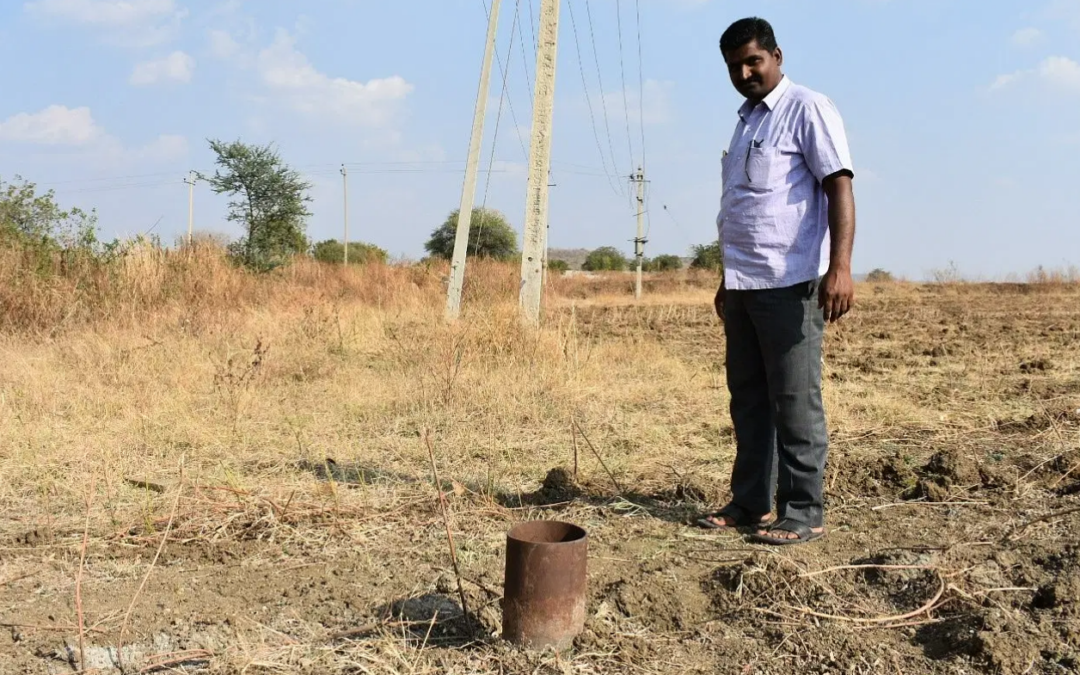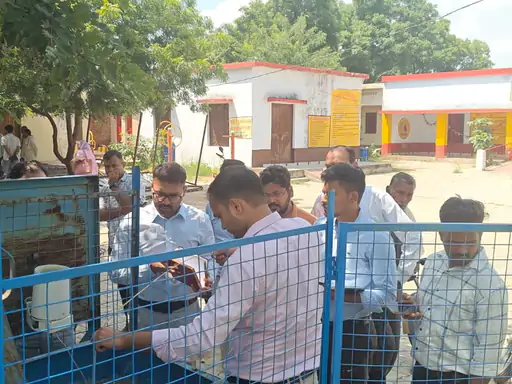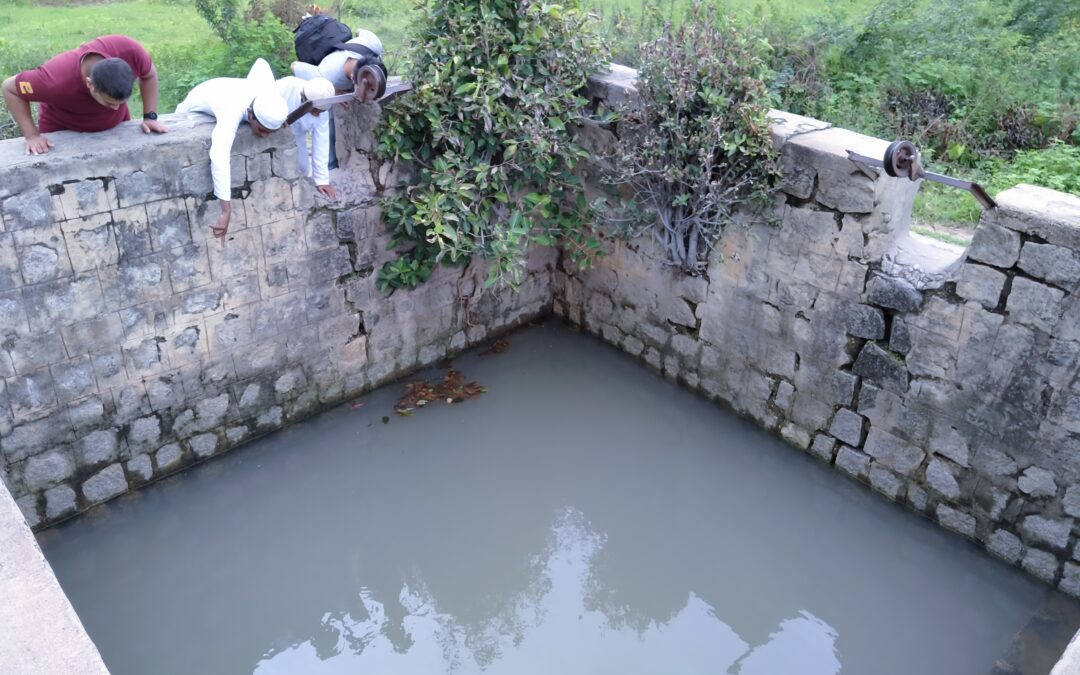Futures Research
The Futures Research programme works in ‘Transformation Labs’. These are collaborative spaces where communities develop and test sustainable, equitable solutions to develop future-proof solutions for a world grappling with climate change.
Illustration by Aparna Nambiar
The Futures Research programme hosts the Climate Adaptation and Resilience in Tropical Drylands (CLARITY) project, part of a global consortium to build climate resilience in the tropical drylands of Africa and India.
Under CLARITY, we have established Transformation Labs in Chikkaballapur and Raichur districts, which are semi-arid regions in the south Indian state of Karnataka.
As we build the Transformation Labs, we are also shaping the Futures Research programme to foster solutions not just for current challenges, but also future ones.
This process takes into account changes in climate and land use along with people’s aspirations for themselves, their communities, and their landscapes. Our methods include identifying trends and signals, participatory modelling, simulations, scenario building, and generating ‘pathways’, (dynamic sequences of decisions and actions designed to move towards a desired future).
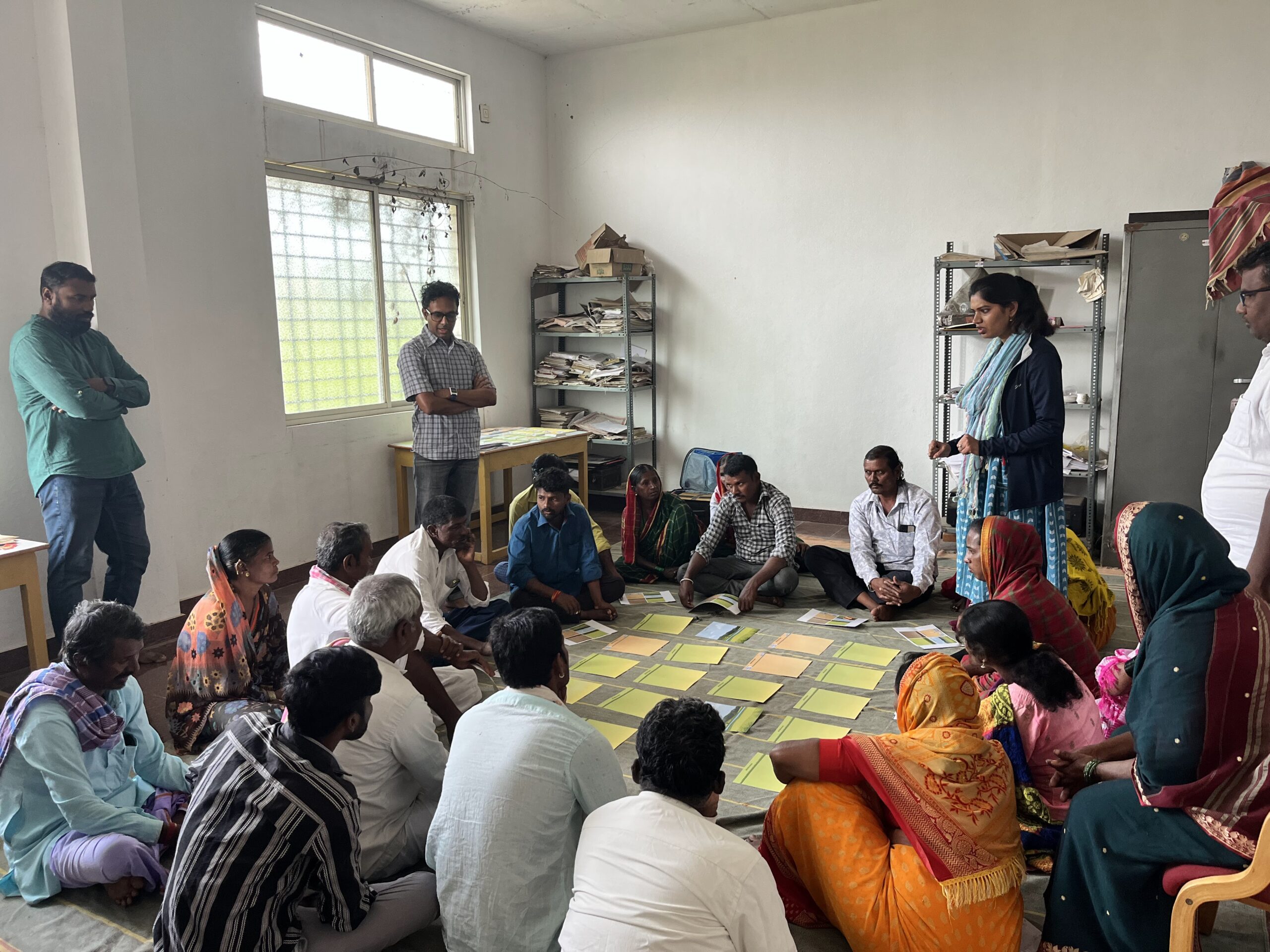
The CLARITY project, along with its partners, Fields of View and Prarambha, is working with communities in the Raichur Transformation Lab to co-create climate-resilient pathways. Photo by Sukanya Deepak, Fields of View
Our Work
Designing Models for Each Transformation Lab to Simulate Future Development Scenarios and their Impact on Water Resources
For systems modelling, we are using tools like STELLA to simulate the behaviour of individuals and institutions in response to changing circumstances. For example, how do improved market access and better prices influence farmers’ crop choices?
In parallel, we are creating hydrological models (using tools such as DRYP) to understand the impact of changes in climate, infrastructure, and the actions of individuals and institutions on surface and groundwater resources. We shall integrate insights from the two models to gain a comprehensive picture of future scenarios spanning the social and hydrological aspects of the Transformation Labs.
Conducting Workshops to Imagine and Articulate Future Scenarios for the Transformation Labs
We are organising focus group discussions and simulation games with the nonprofit Fields of View to understand communities’ adaptive capacities and the thresholds (critical points or limits beyond which a system undergoes significant changes or collapses) of their water and agricultural systems.
These insights are useful in imagining and articulating long-term possibilities and the pathways we can take to achieve them. By the end of this exercise, we shall generate a set of pathways for the development of water resources in both the Transformation Labs.
Researching the Dynamic Interactions between Communities and Water Resources to Inform Strategies for Long-Term Water Resilience
To this end, we are studying groundwater and surface water systems, and analysing climate and land use land cover data. We have:
1. Mapped surface water flow paths, including canals, which were previously not digitised.
2. Compiled data layers for use in hydrological and systems modelling.
3. Finalised boundary conditions for the hydrological and climatic modelling of both Transformation Labs.
In the Raichur Transformation Lab, we have:
1. Identified the boundary for the monitoring of groundwater and surface water.
2. Identified 191 wells for monitoring.
3. Installed four loggers in open and bore wells in the command area of Distributary 10 (~50 sq. km), part of the larger Raichur Transformation Lab (~5,500 sq. km).
In Distributary 10, community hydrologists are manually monitoring canals and natural streams.
The data from these will feed into our hydroclimatic models. These are complicated to develop due to the presence of a canal system and river basin in the region.
In the Chikkaballapur Transformation Lab, we have:
1. Identified which borewells (in both urban and rural areas) are abandoned and which ones are working, and monitoring them.
2. Conducted a vulnerability assessment of domestic water supply access in Chintamani town.
Running a Video Creator Programme in Raichur to Enable Communities to Document their Aspirations and Desired Pathways of Change
Under the programme, we are training eight people to use video and audio tools to share stories for farmers and those in allied occupations. We are providing prompts to help them shape their narratives (for example, the influence water availability has on their daily activities). The goal is to equip them to launch and run their video channels so that they can share perspectives from the grassroots.
Developing Gender-Sensitive and Socially Inclusive Pathways for the Transformation Labs
We are collaborating with the Institute for What Works to Advance Gender Equality (IWWAGE) to identify and develop equitable frameworks for our interventions. Such frameworks are helping us identify the differentiated impacts of climate and development challenges on various groups.
Developing and Documenting Two Futures Research Methodologies
We are expanding the scope of the Futures Research programme beyond the CLARITY project to develop and document two futures research methodologies:
1. Participatory future envisioning.
2. Appraisal of different pathways using tools like STELLA and multi-criteria analysis.
We are using insights from these to build a curriculum on futures research for PhD and Master’s students. We are also exploring research methodologies around modelling (hydrological, climate, crop, etc.), data analysis, scenario-building, and co-creating pathways, and incorporating them in other WELL Labs initiatives.
Conducting a Qualitative Study to Understand Communities’ Problems, Aspirations, and Innovations
We conducted 24 interviews with farmers, civil society organisations’ members, and representatives of women’s self-help groups. We shall soon a publish a report on the study.
Conducted a Community Hydrology Programme to Boost Technical Capacity at the Grassroots and Improve Water Governance (Completed)
Under the programme, we conducted four workshops between November 2024 and September 2025 with a cohort of 35 aspiring community hydrologists to:
1. Inculcate a foundational understanding of groundwater, surface water, hydrogeology, soil, and crop-water relationships.
2. Measure and monitor rainfall, groundwater levels, canals, and streamflow using simple, low-cost methods to leverage data for water management.
3. Prepare water balances and crop water budgets and use them to decide what crops to grow and when to schedule irrigation.
4. Strengthen community institutions and water governance by providing advisory services to water user cooperative societies and farmer groups.
5. Promote water stewardship by framing groundwater and canal water as shared resources requiring collective responsibility and management.
Conducted a Situation Analysis of Raichur and Chikkaballapur Transformation Labs (Completed)
We collated primary and secondary data to provide a baseline characterisation of the challenges and opportunities with respect to environmental and economic resilience in the Raichur and Chikkaballapur Transformation Labs.
Research
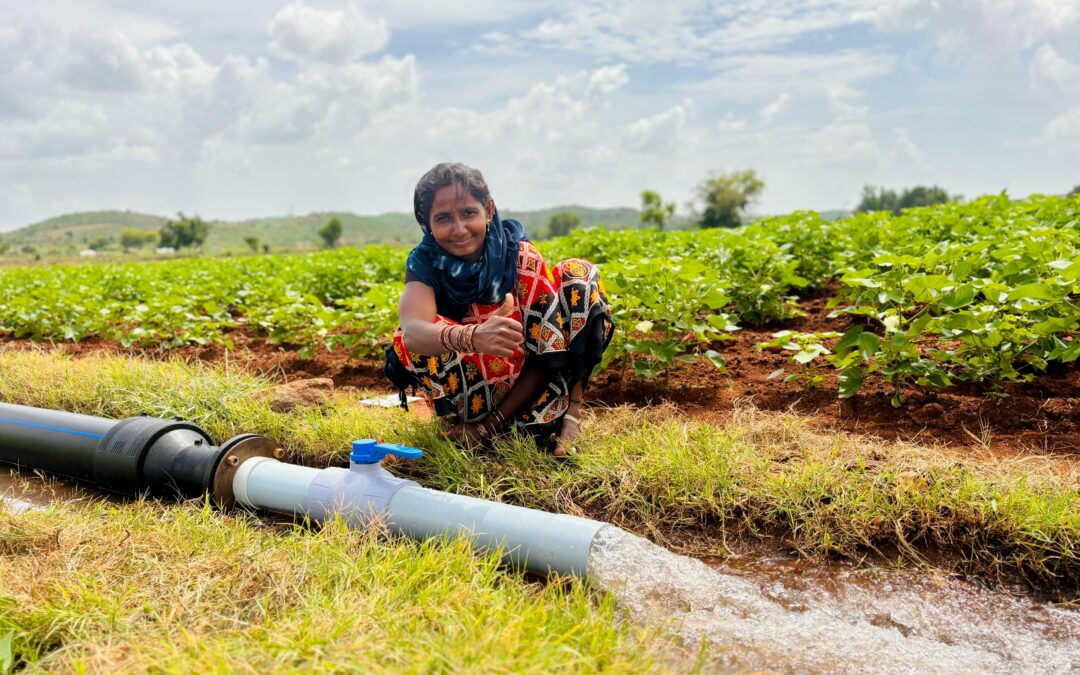
Building Community Expertise in Water Management: Insights From a Community Hydrology Programme in Raichur, Karnataka
When communities can measure and analyse their water systems, they are better equipped to make informed choices, negotiate water use, and participate meaningfully in local water governance institutions
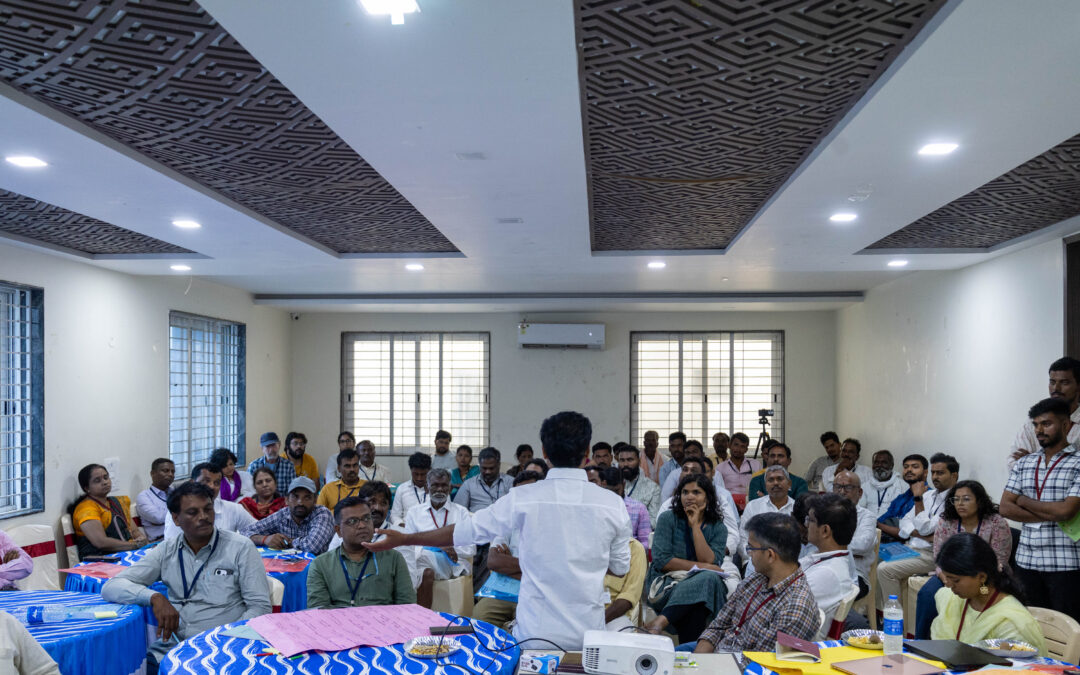
Raichur 2047: Imagining Flourishing Futures
The Raichur Visioning workshop invited residents and diverse, local stakeholders of Raichur to imagine the future of the city in 2047. This report details the method used, proceedings of the workshop, and insights generated from the same.
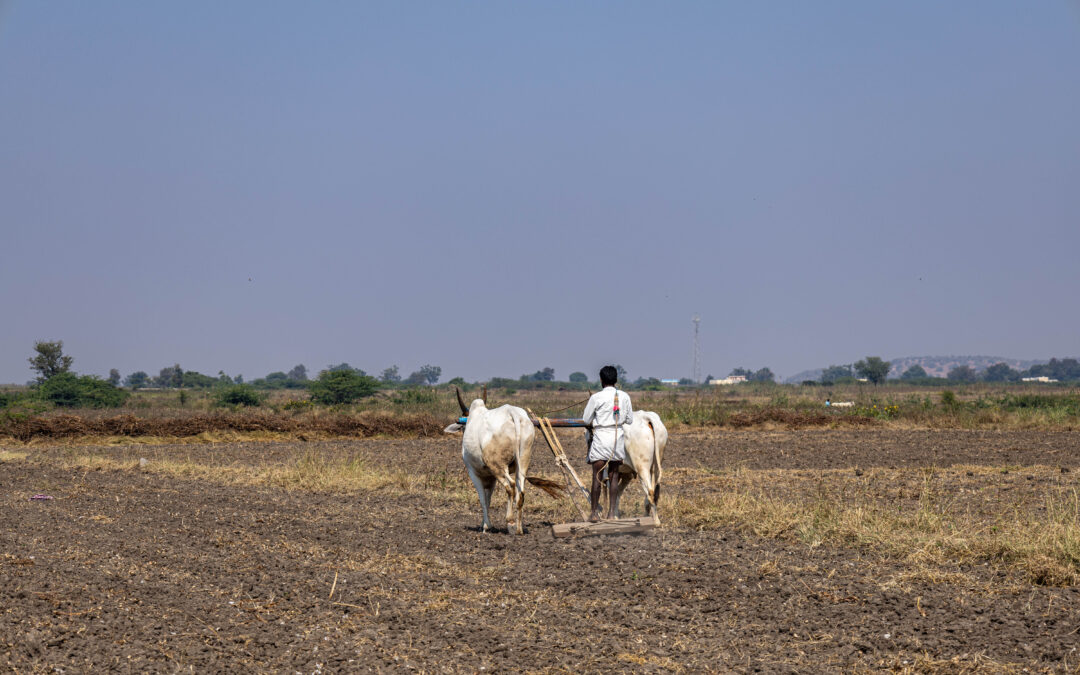
Situation Analysis: Raichur Transformation Lab
This situation analysis report explores the water management and agricultural challenges and solutions in Raichur district, Karnataka. It presents pathways to climate-resilient rural development.
Blogs & Op-eds
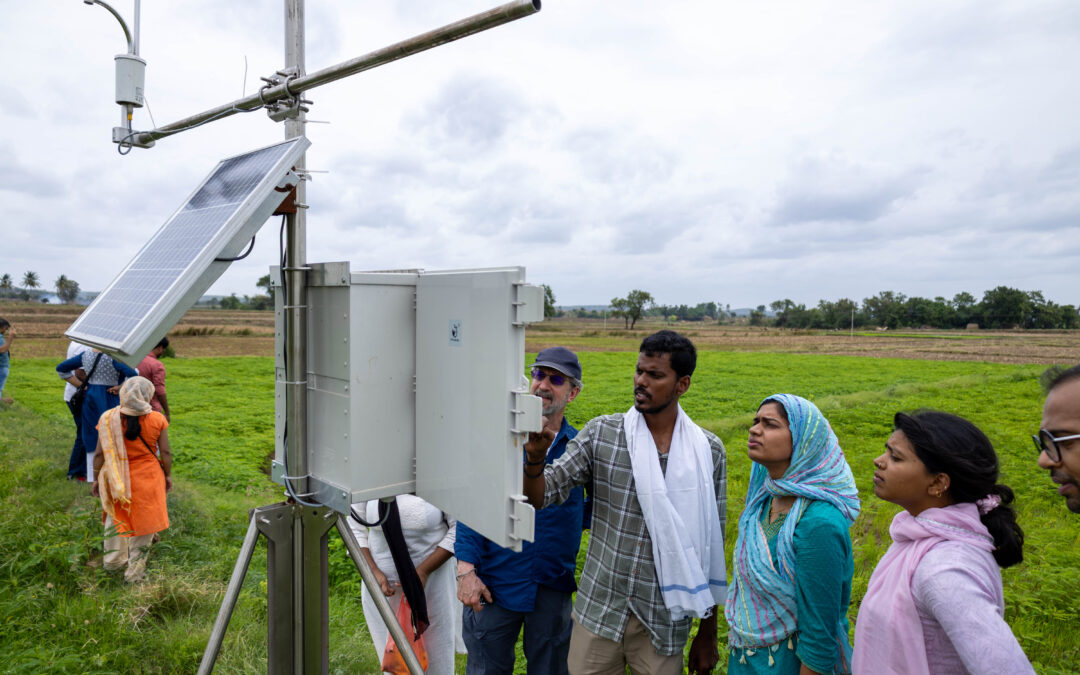
Co-Creating Solutions with Communities | Insights from the Futures Research Programme
The Futures Research team shares insights from their work on designing solutions for land and water challenges in the semi-arid Raichur and Chikkaballapur districts of Karnataka
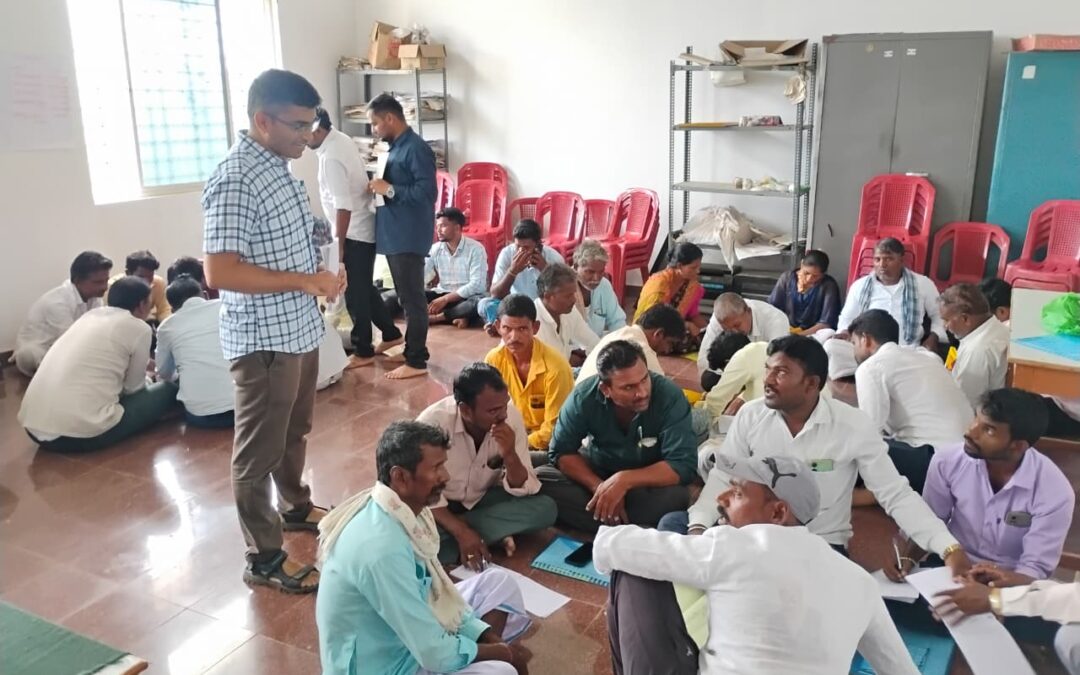
From Science to Strategy: A Community Approach to Hydrology
The community hydrology programme empowers local communities to take charge of water management through citizen science and grassroots governance. This blog documents the third workshop in the programme that focused on water budgeting and water balance estimations.
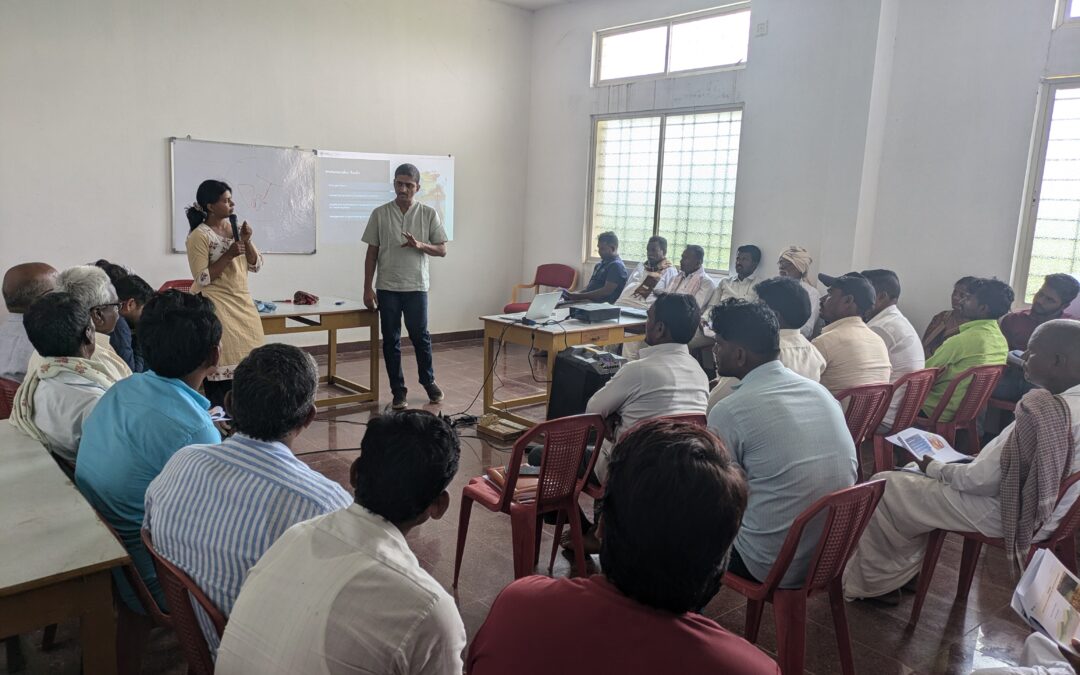
Bridging Knowledge and Action: The Community Hydrology Approach
WELL Labs’ community hydrology programme addresses the critical gap between the scientific study of hydrology and its practical applications for water management in Karnataka’s semi-arid regions.
In the Media
अटल भूजल योजना का जायजा: झांसी के ढिकोली में जल संरचनाओं का निरीक्षण, ग्रामीणों से की चर्चा
Published in Dainik Bhaskar
Scientists Raise Alarm as Rural Water Supply Goes from Depths to Debt
Published in Mongabay India
If you would like to collaborate with the Futures Research programme or have any questions, reach out to us at welllabs.futuresresearch@ifmr.ac.in

